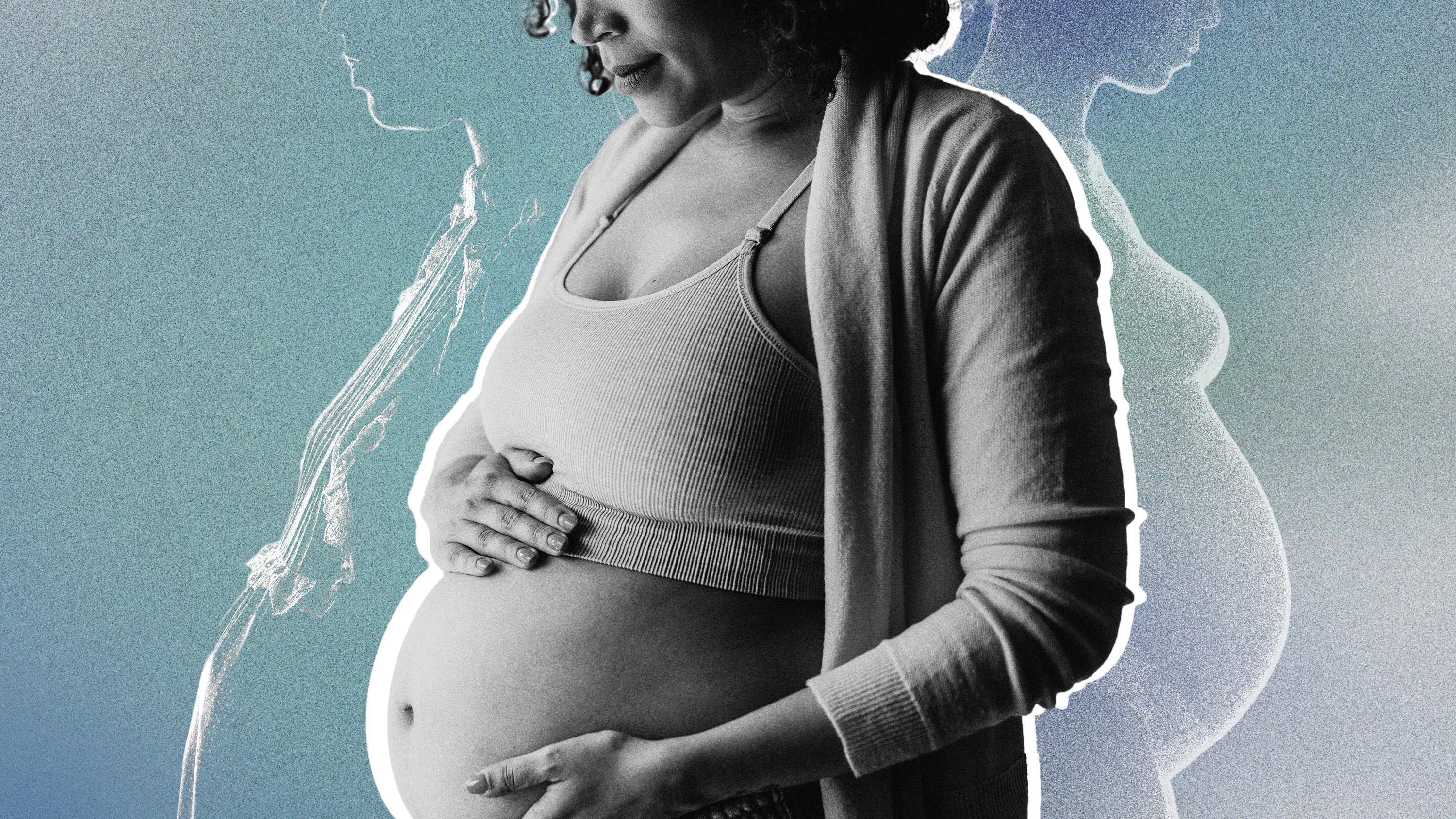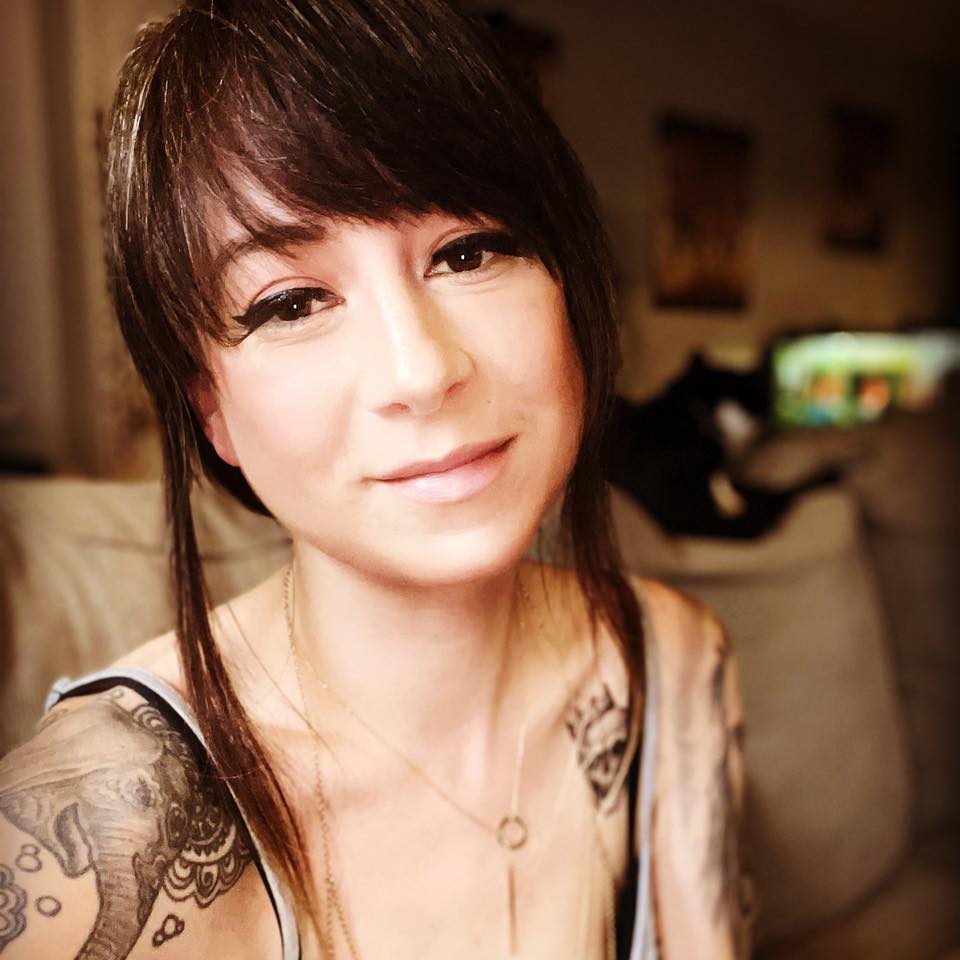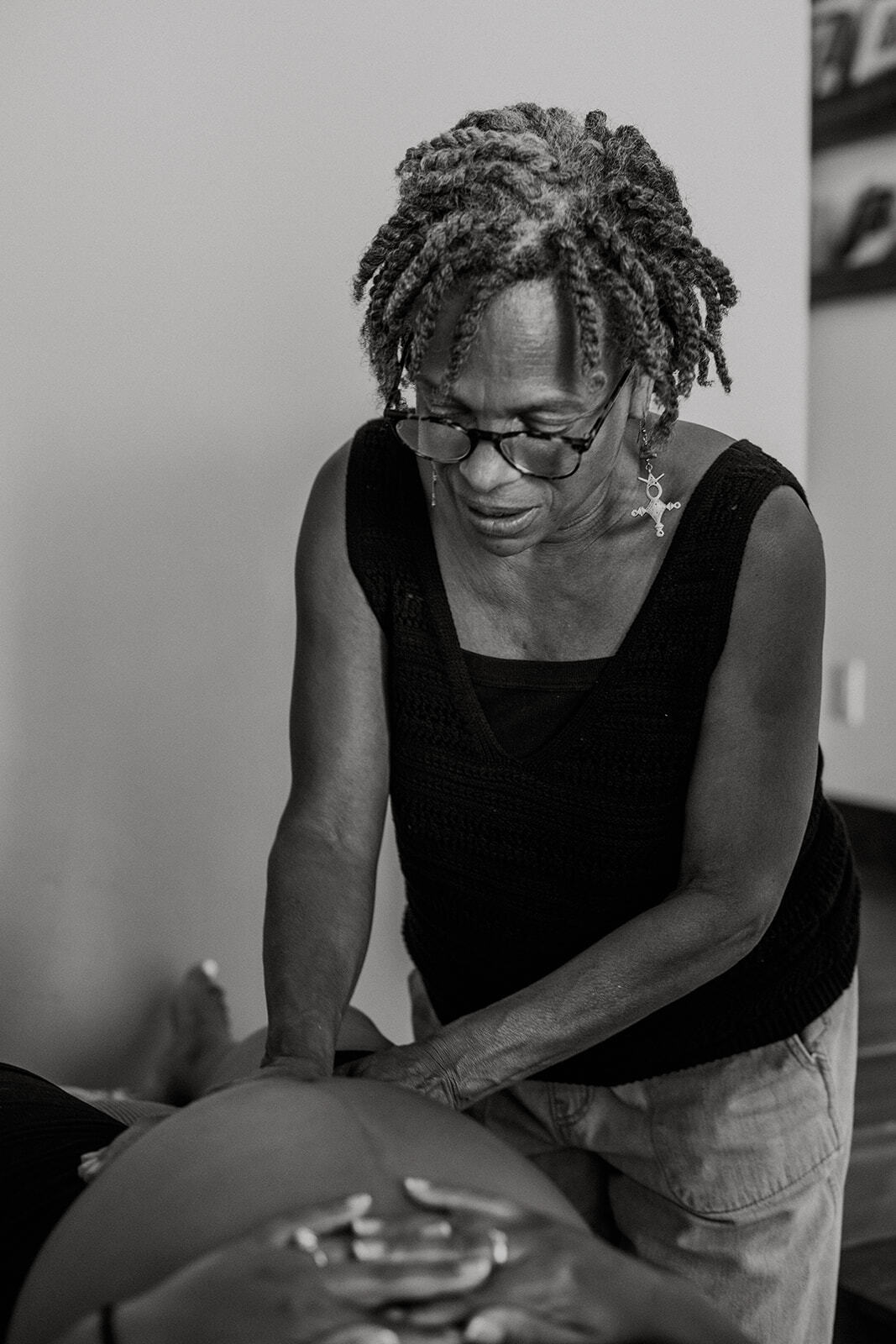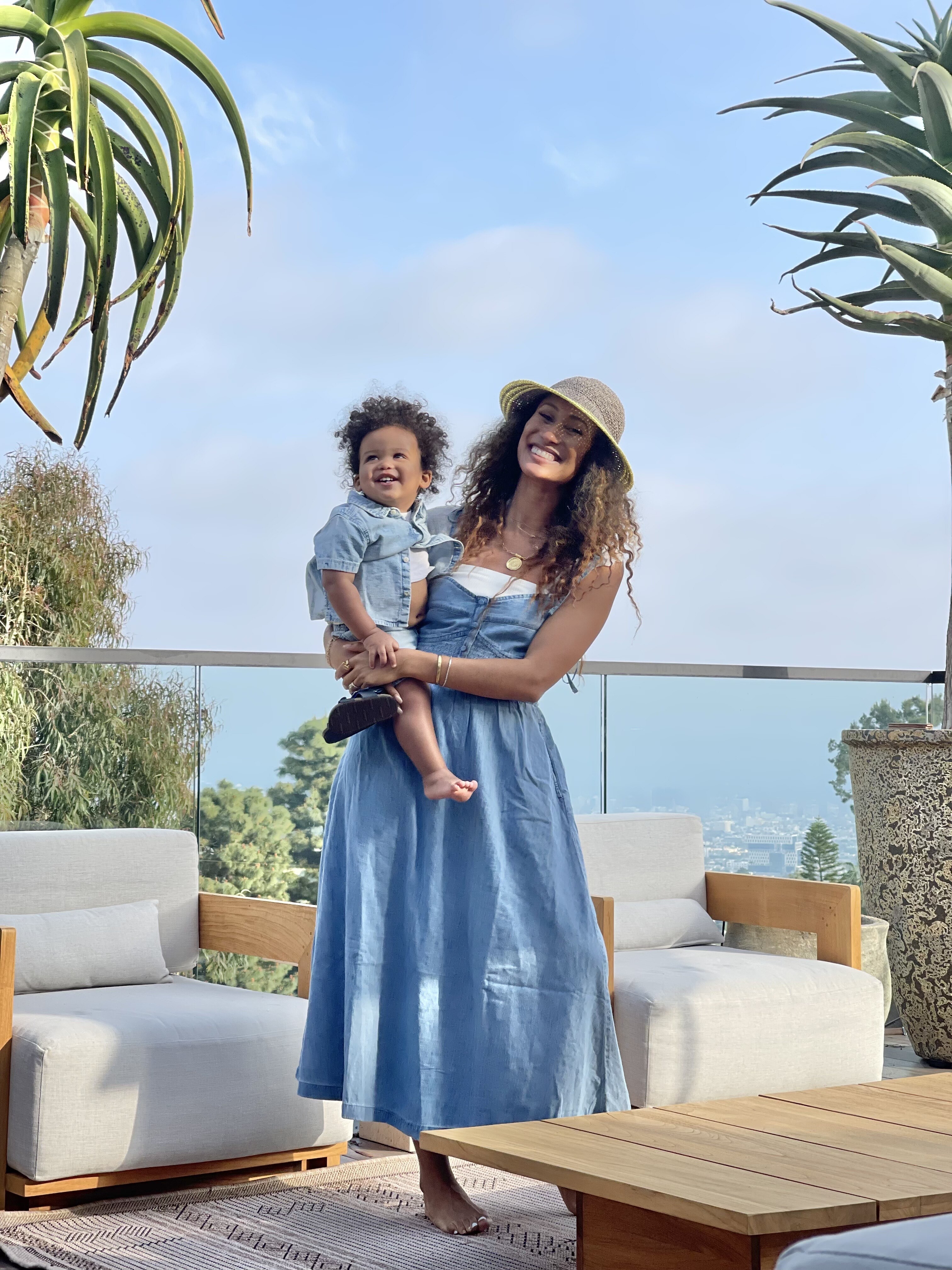Inside the Fight to Make Pregnancy Safer
Childbirth can be deadly, especially for Black women. A new initiative is hoping to change that.


By the time Elaine Welteroth neared the end of her first pregnancy, she was completely demoralized by the medical system. The former Teen Vogue editor-in-chief and television host was diagnosed with symphysis pubis dysfunction—a debilitating pregnancy-related condition that can make it difficult and painful to move—and felt isolated by her physicians. “I didn’t feel safe giving birth in the hospital,” Welteroth says.
Her concerns were valid. The United States has the highest maternal mortality rate of any developed nation—a rate that has more than doubled in the last 20 years. In the U.S., Black women are at least three to four times more likely to die from a pregnancy- or birth-related complication and are twice as likely as white women to give birth with little to no prenatal care.
Afraid for her health and the health of her pregnancy, Welteroth desperately searched for an alternative. In her search she found Kim Durdin, a licensed midwife and founder of Kindred Space LA, a Black woman-led birthing center. “When I met Kimberly it was like going from darkness to light,” Welteroth says. “She nursed me back to life and helped me find my confidence again.”
In April 2022, Welteroth safely gave birth to her son. “As soon as my baby popped out, I told Kim: ‘This is not the end. You’re with me for life, I’m with you for life.' We just felt there was a calling for us to work together.”
Together, along with Janelle Green, president of The Victoria Project—a nonprofit providing resources and funds to pregnant people in need of midwifery and holistic care—the women created the birthFund, a new initiative focused on expanding access to life-saving, affirming midwifery services nationwide. Already, the fund has gained the support of Serena Williams and Alexis Ohanian, Kelly Rowland, Ayesha and Steph Curry, Chrissy Teigen and John Legend, Ashley Graham and more.

Kim Durdin, founder of Kindred Space LA, working with a client.
In the U.S., nearly 45 percent of new moms describe their births as “traumatic,” and while midwives have the potential to prevent more than 80 percent of childbirth-related deaths, more women than ever live in areas without access to maternity or midwifery care.
Durdin, Welteroth and Green spoke to Marie Claire to discuss their efforts to change that stark reality by expanding access to midwifery services nationwide.
Stay In The Know
Get exclusive access to fashion and beauty trends, hot-off-the-press celebrity news, and more.
Marie Claire: What are some of the most common barriers to midwifery care that you see people face and that you are actively working to overcome?
Janelle Green: I would say the number one barrier that we have found is financial costs. Most midwives are already discounting their care or giving it pro bono because they want people to have access to the type of care they give and they don’t want to turn anybody away.
What ends up happening is that not only can families not afford the care, but then the midwives are already going without the financial investment that they need in order to continue to provide care and expand their services.
Kim Durdin: The other thing I would say is just that sometimes people don't know about midwifery care, and it’s not often covered by insurance or insurance reimbursement for midwifery care is very low, or there’s just not any midwives available for folks in communities or in hospitals.
Elaine Welteroth: I think there’s also a cultural component here, which is why birthFund is not just a fundraiser, but a movement for cultural change and a narrative program to reintroduce and reframe midwifery for a new generation of parents. And unfortunately there just aren’t enough midwives in this country. We want to help create sustainable pipelines of business for midwifery care, specifically BIPOC-led birthing centers and midwifery practices—that’s a very real piece of this systemic problem that cannot be ignored. We can’t just put it all on midwives to save us from this maternal health crisis—they need investment from us in order to do this life-saving work, and unfortunately most of the midwives and Black midwives that are working today are overworked and under-resourced.
We can’t just put it all on midwives to save us from this maternal health crisis—they need investment from us in order to do this life-saving work.
MC: How has your work become even more important in a post-Roe world?
KD: That’s such a great and powerful question, and honestly the attacks on bodily autonomy and human rights in general—on our culture and diversity—are overwhelming and I think they’re meant to overwhelm us. We can’t fight every battle there is out there to fight, but as caring compassionate women we do want to heal the world. Midwifery is my contribution to reproductive justice, to humanity, and to support folks birthing with dignity within broken systems while also working with organizations that are seeking to transform those systems.
One of my mentor midwives, Robin Lim, has a motto: “Healing the earth begins with birth.” That might sound kind of “woohoo,” but if you think about it, isn’t it true? If we could heal the violence that occurs to people bringing life into this world—if we could create safer spaces for people—I don’t see how we couldn’t create a better world.
MC: How much of this project and the work that you all are doing really is dependent on the three of you?
EW: I'm already choking up. I could not—there's no way I could do this without them. I would not be doing this work without them. I would not, could not. I need them to be able to do this and the way that they have shown up and poured into this and made it possible, it’s not only going to have ripple effects for countless families in this country but it’s been such a healing journey on an individual level. You can’t talk about birth without getting personal—it’s emotional; it’s life or death; it brings up trauma; it’s the most human act. It has been restorative to my soul to be able to work with people who are like-minded, aligned in values that you can trust to build something that is bigger than all of us. It’s just been the most divine, healing, beautiful and creative process.

Elaine Welteroth with her son.
KD: It is a reflection of midwifery—Elaine is midwifing a movement right now. I always say that midwifing is a verb and you can set it in other scenarios. It’s about nurturing something. It’s about a vision. It’s about preparing for the future. It’s about health.
I’ve had so many people share their horror stories with me. I was dismissed. I wasn’t listened to. My child almost died. I almost died. My child did die. My wife did die. My inbox is full of these messages, so if we wake up and think this isn’t relevant anymore you just look at your inboxes and see people saying: “Please, we need help.” These are people’s real-life stories, and they’re just the wind beneath our wings. I hope that we can begin to hear more stories of joyous births and things that have been healed because of this work that Elaine and Janelle and I've chosen to do.
JG: She’s being extremely humble in that share. But to your question, I think that much like the experience of parenting in our modern world and in this country in particular, this work can be very isolating and it can be very lonely. These women showed up in my life right at the moment that I needed. Right when I was getting to the point where I didn't know where to turn next, or how to find the resources that I knew so many families needed, I got an email from Elaine and I literally started to cry. I knew that if someone with her platform was willing to take this on, that other people would start to participate. I knew that people would start to share their stories and that all these things that have been happening to women in the shadows would come out into the public eye and we wouldn’t be able to turn away anymore.
If we could heal the violence that occurs to people bringing life into this world...I don’t see how we couldn’t create a better world.
MC: As you all have mentioned, this work can be both rewarding and isolating. Can you recall a time that rejuvenated you and reminded you that this worth is absolutely worth it?
EW: Oh, my baby has just joined.
KD: Hi (redacted)!
EW: I’ll let somebody else answer, just give me a second!
(NOTE: Elaine did not return, because baby trumps interviews, always!)
KD: I feel like every time I get to work with my clients I'm rejuvenated and renewed and I know why I need to keep going, but also why I need to help create more access to this care. The truth of the matter is that our work at Kindred Space LA and partnering with like-minded midwives at MLK Hospital has transformed the hospital. At one point they were trying to get rid of the midwifery program because they felt that it didn’t make money for the hospital.
We were able to help keep those doors open by rallying the community and really speaking truth to power and saying that this hospital cannot close this program in the face of this maternal health care crisis. I'll say that and there's so much work to be done, but all these amazing collaborations really feed our soul, our humanity and our beloved community.
JG: We get countless testimonials and responses and thank yous from the families that receive funding to access midwifery care, but early on when this was all just gestating and blossoming I had one client in particular whose personal letter I still keep with me in my desk. She sent me a note, just very briefly stating that her family had recently moved here from Iran. She’d had a very difficult pregnancy with no support, and explained that the women in her family had rarely been given a choice about who to marry or whether or not they were going to have children, let alone able to decide who was going to attend a birth, where to give birth or how to give birth. She told us we ended up changing the trajectory of her family.
She ended up having a little girl, and she shared how we were affecting generations. Her mother sent a hand-painted scarf as a thank you, and so that is a family I will never forget.
MC: Ten years from now, despite the significant steps backwards this country has taken in terms of reproductive justice, what do you hope you can say about pregnancy, birth, postpartum and midwifery care in this country?
JG: For me, it would be that everybody knows what a midwife is.
KD: I would say, I want to use Birth Center Equity’s focus, which is safety, abundance, and liberation for all birthing people.

Danielle Campoamor is Marie Claire's weekend editor covering all things news, celebrity, politics, culture, live events, and more. In addition, she is an award-winning freelance writer and former NBC journalist with over a decade of digital media experience covering mental health, reproductive justice, abortion access, maternal mortality, gun violence, climate change, politics, celebrity news, culture, online trends, wellness, gender-based violence and other feminist issues. You can find her work in The New York Times, Washington Post, TIME, New York Magazine, CNN, MSNBC, NBC, TODAY, Vogue, Vanity Fair, Harper's Bazaar, Marie Claire, InStyle, Playboy, Teen Vogue, Glamour, The Daily Beast, Mother Jones, Prism, Newsweek, Slate, HuffPost and more. She currently lives in Brooklyn, New York with her husband and their two feral sons. When she is not writing, editing or doom scrolling she enjoys reading, cooking, debating current events and politics, traveling to Seattle to see her dear friends and losing Pokémon battles against her ruthless offspring. You can find her on X, Instagram, Threads, Facebook and all the places.
-
 Princess Anne's Unexpected Suggestion About Mike Tindall's Nose
Princess Anne's Unexpected Suggestion About Mike Tindall's Nose"Princess Anne asked me if I'd have the surgery."
By Amy Mackelden Published
-
 Queen Elizabeth's "Disapproving" Royal Wedding Comment
Queen Elizabeth's "Disapproving" Royal Wedding CommentShe reportedly had lots of nice things to say, too.
By Amy Mackelden Published
-
 Palace Employees "Tried" to Get King Charles to "Slow Down"
Palace Employees "Tried" to Get King Charles to "Slow Down""Now he wants to do more and more and more. That's the problem."
By Amy Mackelden Published